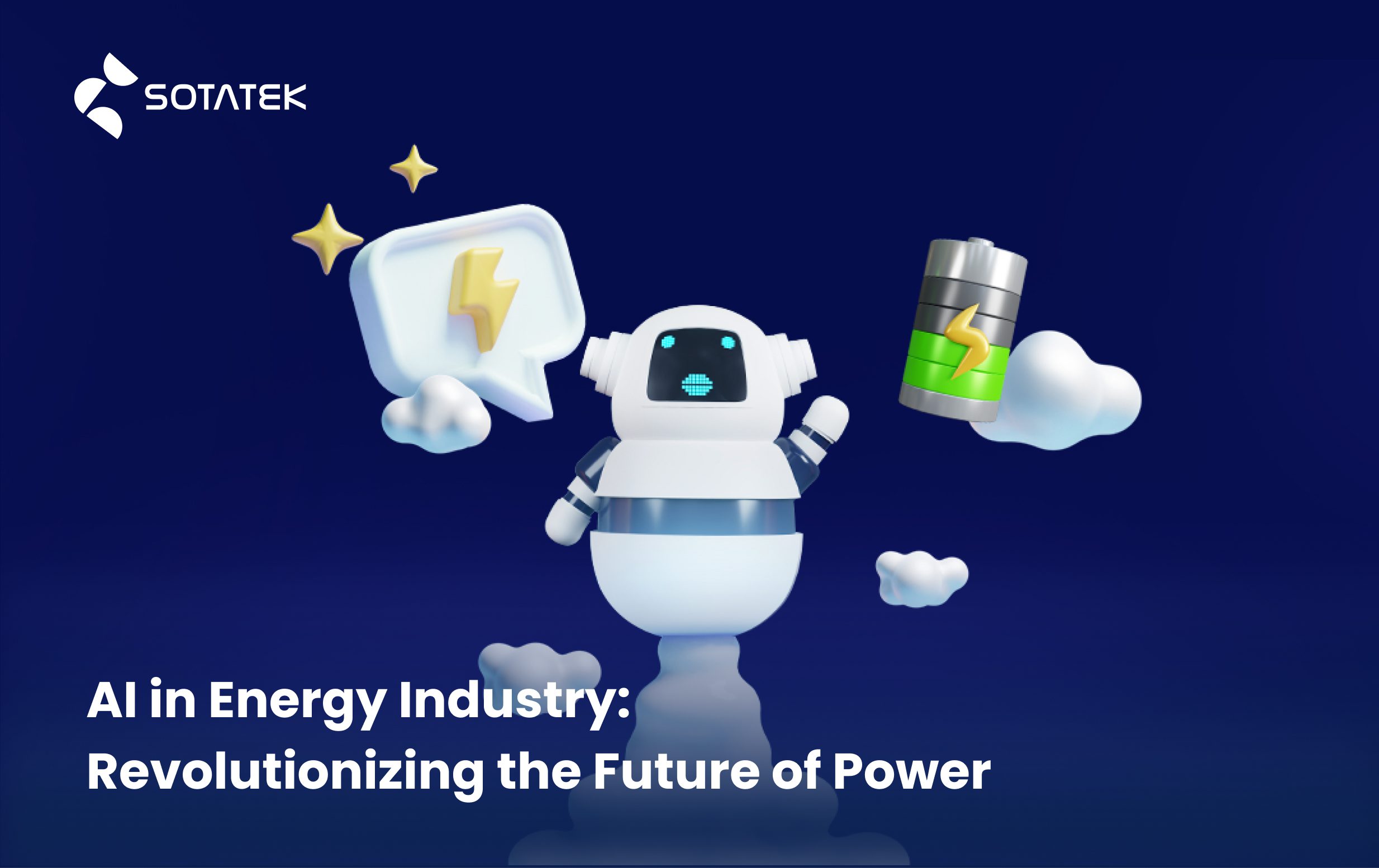In the ever-evolving landscape of the global energy industry, one technological force stands out as a game-changer: Artificial Intelligence (AI). Forbes estimates that the growth of AI in Energy sector will hit 50% by 2024. Also, the global AI energy market is forecast to reach $7,78 billion by 2024, showing the growing interest of energy companies in this innovation.
From optimizing grid operations to integrating renewable energy sources and enhancing energy efficiency, AI's transformative potential promises to reshape the energy sector into a more sustainable, efficient, and innovative domain. In this article, we will discover how exactly AI technology can benefit this sector and the AI applications in Energy sector.
1. Main challenges of Energy Industry
Carbon emissions: The International Energy Agency's reported that global CO2 emissions have surged to record levels, experiencing a remarkable annual growth of 6%. This unprecedented increase has been attributed mainly to the global growth in energy demand.
High centralization: The global energy network is increasingly dependent on major grids and highly centralized providers, which presents challenges for sustainable development. To address this, creating smaller, interconnected networks of energy grids powered by AI is a viable solution to reduce reliance on central utilities.
Smooth transition to renewable energy: The share of renewables in power generation is expected to rise from 44% to a highly-optimistic 80% by 2050. With increasing breakthroughs and widespread adoption of solar and onshore wind technologies, a seamless transition becomes imperative.

What are the main challenges of Energy industry?
2. Benefits of AI in Energy Sector
Some of the key benefits of AI in the energy sector include:
- Efficient energy production: AI streamlines the processing of energy-related data, including historical energy consumption records, power outage reports, and system overload data. Leveraging this technology, valuable insights on patterns, dependencies, and actionable strategies for optimizing energy production and distribution during high and lower-demand hours and locations can be effortlessly derived.
- Reduce carbon emissions: One of the AI applications in Energy sector enables precise determination of the required energy amount for specific times and locations, supporting providers to tailor energy production to meet customers' precise demands. This ensures no excess energy is generated, hence reducing carbon emissions. Additionally, AI helps in predicting periods of availability for renewable energy sources like sunny or windy days, allowing providers to strategize production, and prioritizing sustainable energy sources whenever possible.
- Failure prevention: AI-powered failure prediction is an outstanding benefit when applying AI in the energy sector. This technology can predict problems before they happen, therefore, decreasing ill-reputed energy-related cases, such as oil spills or hazardous coal extraction facilities. Besides identifying problems, Artificial Intelligence can also offer corrective action to avoid disruptions. All of these ultimately can reduce costs and avoid damage to energy businesses.
3. How can AI be used in Energy?
a. Smart Grid
A smart grid represents a novel approach to energy-efficient networks, leveraging the bidirectional flow of electricity and data. Its distinctive feature lies in the integration of AI, Cloud, and digital technologies, supporting enhanced control and self-regulation. One example of the smart grid is the collaboration between London's National Grid and IBM's cloud-based analytics. This intelligent grid facilitates preventive and predictive maintenance, both critical for its optimal performance. By harnessing AI, the smart grid achieves more accurate forecasting, heightened resilience, and improved security for the entire grid system.

Smart grid
b. Water Storage and Disposal
It is true that the energy industry generates a large amount of waste, and it would affect negatively the environment if it is not disposed of properly. Thankfully, the application of AI in energy sector can help.
For example, an AI-based system can analyze and evaluate the short- and long-term effects of different radioactive substances and their vulnerability to diverse conditions and materials. This enables researchers to understand the safety levels in existing radioactive storage facilities and explore avenues for their sustainability and enhancement. Consequently, more secure nuclear waste storage facilities can be constructed, or methods for complete waste disposal can be discovered.
Moreover, AI proves advantageous for companies engaged in renewable energy extraction, as they grapple with the disposal of broken equipment like solar panels or wind turbines. Artificial intelligence can identify the most valuable materials in these components and propose strategies for their reuse or recycling.
c. Renewable Energy Integration
Thanks to Artificial Intelligence and Machine Learning in the energy sector, accurate integration of renewables can now be forecasted and predicted. It helps in managing the integration of renewable energy sources into the traditional power grid. This includes forecasting the output from wind and solar farms and dispatching the energy to maintain a balanced system.
d. Digital Twins
Digital twins are regarded as a life-saving framework for the industrial energy complex. They are multi-dimensional visual representations of processes, facilities, or physical objects. Serving as real-time virtual models, digital twins offer more research opportunities compared to simulations. In the energy and Artificial Intelligence sector, they facilitate the study of wind turbines and power-generation facilities. Utilizing AI, a digital twin marks a significant advancement in improving the service, experimentation, maintenance, and optimization of both traditional and renewable energy networks.
4. The Future of AI in Energy Sector
As technology continues to advance, AI is expected to play a crucial role in optimizing energy production, distribution, and consumption. It will enable more efficient grid management, seamless integration of renewable energy sources, and optimized maintenance practices. By harnessing the potential of AI, the energy industry can pave the way for a greener, more sustainable, and technologically advanced energy ecosystem, ensuring a brighter and more promising future for generations to come.
In need of an AI Development Services Provider? Leave us a message and we’ll reply as soon as possible. SotaTek owns Top AI Developers in Vietnam, who are willing to solve complex problems for your energy businesses. We integrate your values into Excellent AI Services and create optimized experiences.



























